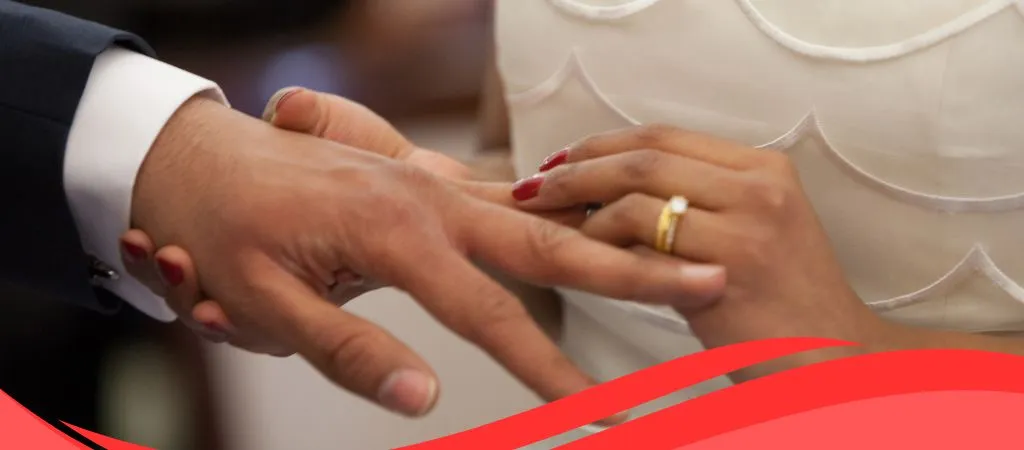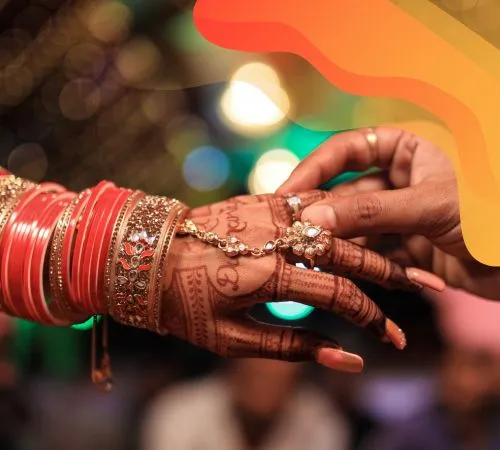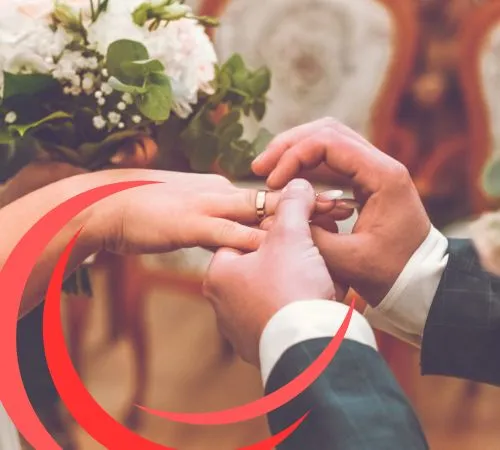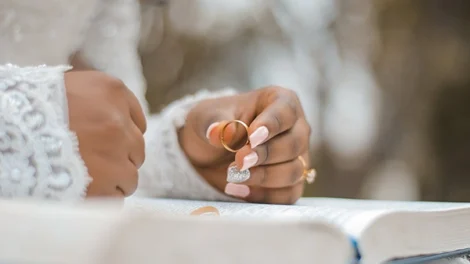The practice of arranged marriage extends back centuries within many cultures and reflects the arrangement of a marital union by a family or community, often for people who have never met. This traditional custom carries deep cultural significance and serves as an anchor for many communities around the world. Let’s explore this contraceptive culture by looking at its history, purpose, modern day ideas, and even the effect it could have on the people, and world around it.

Feeling curiosity and skepticism, many have asked why it is this. A large majority of people could get married to someone they barely know, but that isn’t the issue. It’s the culture around it that seems alien. What makes people really wonder? There is a difference between the love of your life to someone you’ve known your whole life.
As we make our way through the world of arranged marriages, we will switch our focus towards analyzing the presence of this custom in American culture. Do arranged marriages occur in America? Arranged marriages do occur in America, in fact, continue to exist in America, contrary to popular belief, just not as predominantly as they do in some other countries. In the modern day American society, love marriages are more common than in prior periods. The persistence of arranged marriages, though, adds a unique thread to the colorful tapestry of cultures that make up this country.
Table of Contents
Our probe shall endeavor to unpack the subtleties of arranged marriages in the American realm, pushing back against preconceptions and exposing an unexplored side of marriage in the United States. By taking a journey without maps, we aim to offer a glimpse of different marriage practices coexisting, the changeable perspectives on love and marriage, and the multicultural sides of America.
Understanding Arranged Marriages
Matrimonial unions, which are orchestrated by kin or third parties, are known as arranged marriages. The selection of prospective spouses is often based on cultural norms, religious beliefs, economic status, or political considerations rather than individual wishes. Arranged marriages originated when people started moving from living in small, isolated communities to large, isolated cities. It was in these cities where a marriage to a perfect stranger was utterly possible.
These arranged marriages were convenient, almost like a business deal. Marriages back then were all about money and land, and who could give who was the best financially off? Modern arranged marriages are considered to be a social as well as a cultural ideal where parents or families find an appropriate life partner for their children or family members.
In certain cultural contexts with strong ties to family and tradition, arranged marriages play an essential role. In countries such as Japan, India, and Pakistan, arranged marriage has a long history, and communities encourage these unions because they help maintain social structures, family harmony, and cultural continuity.
When comparing arranged marriages to love marriages, it is vital to recognize the critical distinctions in the dynamics of these two types of marital approaches. Arranged marriages emphasize familial compatibility, economic desirability, and societal harmony, whilst love marriages consist of individual selection, romantic love, and personal compatibility. Although both marriage types have their pros and cons, comprehending the subtleties between the two can offer valuable insights into different practices of union and companionship across cultures.
History of Arranged Marriages in America
The ties between arranged marriage and US history are complex, stretching back to the times of the earliest colonies. Those marriages were often more about the family than the couple. Indeed, in the narrative of US history, there were always these marriages of convenience for the purpose of forming colonies, expanding empires, or creating wealth. Couples went along with these alliances, and children were born as the next generation to carry on the work. Family is the word you can never take out of the equation of life in any community.
Arranged marriages have a substantial history in America, having had and continuing to have an enormous influence on how multicultural America has come to exist. Until the very recent development of our society within the 21st century, it remains essentially the same. Millennials are not the first to challenge arranged marriage’s predominating presence in many communities; they are, however, the first with internet dating and divorce.

Today, one can hardly throw a stone without it hitting an arranged marriage within one’s extended family or friend group. It is ever present in the cultural practices of some immigrant groups of America, as it has always been, and the criticism of the pseudo-cultural practice has always existed alongside the actual practice of marriage itself.
Factors Influencing Arranged Marriages in America
When we are talking about “Do arranged marriages occur in America?“. We need to consider some facts about this marriages. A multitude of factors mold arranged marriages in America into the unique phenomena that they are in different communities. By and large, the constituents of these marital unions are influenced by their cultural and religious environments, which play a massive role in whom they select (or who is selected for them) and why they choose (or why it is chosen for them) to form these bonds.
Customs and values are the backbone of any rich cultural heritage, and the emphasis is often on maintaining this heritage, just as communities that have had to immigrate throughout history prioritize teaching later generations their community’s language, values, and customs.
The crucial role that family dynamics and traditions play in arranged marriages in America can’t be ignored. In such marriages, the family is the basic unit that not only sanctions the couple’s union but also helps them in the decision-making process. The “couple,” as we conceive of it in romantic love or a type of marriage solemnized on the basis of personal choice, does not exist in the same way in arranged marriage cultures in America.
However, the family remains more or less the same, whereas there is a “couple”, and their relationship to the family, over time and across cultures, is what we in the social sciences might call “variable.”
While arranged marriages are traditional, they are also not without the power of free will, as is often imagined in Western societies, when it comes to contemporary arranged marriage among some people in America. That’s because individuals who have an arranged marriage also have something called “the right of refusal.” If the next time you think of the word “arranged marriage,” you imagine a livid, reluctant young girl being hauled off to marry some old man, remember that image is incorrect.
Contemporary Examples–Do Arranged Marriages Occur in America
Arranged marriages still exist in America today, although less prevalently than in other parts of the world. By sharing case studies and real stories of people involved in arranged marriages, we can better grasp what happens behind the scenes and why individuals would want to be involved in an arranged marriage. Individual stories of arranged marriages in America continue to grow, adding a more personal touch to modern arranged marriages.
This article gives an American glimpse into a rare world that many people may not know much about. By focusing specifically on arranged marriages in America, the book hopes that people will feel a connection to arranged marriages, ultimately thinking twice about what they already may believe about the subject.

Perspectives about how common arranged marriages are in the United States differ based on what you read and whom you speak to. Statistics can be helpful, but they’re only part of the story. Even if they show that the majority of couples marry for love, arranged marriages are still a critical practice, highlighting the country’s marital diversity. Research studies convey which people are more likely to have arranged marriages, how these marriages function in terms of equality and happiness, and what their outcomes are, thus giving us a fuller view of the subject.
Furthermore, considering the customs of arranged marriage per different groups provides a more comprehensive understanding of the continuation and alteration of this tradition in distinct ethnic and cultural communities. Other communities have different customs, traditions and values and employ their own methodologies to ensure compatibility in arranged marriages. This exploration allows us to recognise the diverse mosaic of cultures in American society and, therefore, better understand the complex and genuinely unique practice of arranged marriages.
Challenges and Benefits of Arranged Marriages in America
In America, arranged marriages are subject to a specific set of advantages and drawbacks that determine how this contract will affect the people involved. Countering incorrect assumptions and prejudice regarding arranged marriages is vital in comprehending this custom. Assumptions arise from a lack of cognizance of the cultural tensions and forcing factors that shape arranged marriages. By dismantling these stereotypes and forming an existing knowledge of the background with customs and principles, we can marvel at the profoundness and significance of arranged marriages within America.
Arranged marriages boast numerous advantages, among them the profound underpinning of family support and compatibility they guarantee. With the family front and centre in the marriage process, parents ensure that particular couples are properly matched in terms of shared values, beliefs, and cultural background; this emphasis on compatibility ensures a harmonious, stable, and satisfied relationship, perhaps with an element of unity and tightness in the family itself.
Nevertheless, arranged marriages also come with challenges in terms of autonomy and personal preference. Moreover, a family can be a source of strength, but it is also possible that family conflicts with an individual’s own goals. Thus, reconciling individual autonomy with family expectations can be difficult, requiring open communication and mutual respect to steer through potential issues. Consequently, straddling personal preference with family decisions is also tricky in terms of finding a compromise that respects both personal agency and cultural legacy. By acknowledging and managing these challenges, individuals in arranged marriages can try to strike a harmonious balance in relation to autonomy and family.
Legal and Ethical Considerations
Within the structure of arranged marriages in the United States, legal and ethical considerations are crucial in protecting the rights and welfare of individuals who enter into such unions. One of the essential components of any marriage, and an arranged marriage is no exception, is the concept of consent. Consent must be voluntarily granted by all people who enter into a marriage. Consent is so vital to the US legal framework for marriage that it is referred to as an accessible and knowledgeable agreement. The legal structure surrounding consent when it comes to marriage safeguards individuals from undue influence or coercion in the process of arranging marriages.
Accepting various marriage practices, such as arranged marriages, requires cultural sensitivity and understanding. Being culturally competent allows individuals and communities to acknowledge the customs, norms, and traditions that shape arranged marriages. The promotion of such careful attention to culture cultivates an environment where all marriages are respected and supported, promoting diversity and comprehension in the general society.
Raising awareness and supporting people involved in arranged marriages are crucial components of addressing issues such as empowerment, self-determination, and access to resources. Organizations and networks can provide information, support, and practical assistance to people grappling with the complexities of an arranged marriage and to those who want to ensure the rights and welfare of those living in arranged marriages are protected. By raising awareness and support, we can promote the empowerment and agency of people in arranged marriages, creating an environment of mutual respect and equity for everyone involved in these unions.
Conclusion
Finally, our close look at arranged marriages in America has shown how deeply their roots are established here, the two very different kinds of societies they arose from, the contrasting cultures that still influence them, and the lives much like our own that they impact. The American reality of arranged marriage, with all its ever-emerging forms, is enacted in none too different a way from our unions and in none too different a way from those arranged marriage societies we discussed. Those we consider forerunners in the one-time-only, no-outs prospect of marital union. In the last chapters, we detailed the legal and ethical issues entailed by arranged marriage practice and the way these have arisen in recent years.








Add Comment